Owning second or third properties for personal use creates many fond memories and are great lifestyle assets whether it is with family and friends at the lake, skiing and hiking in the mountains, or playing golf through the winter in warmer climates down south. Most of the families we serve have two or more homes, and many of these properties are in another province, or country (such as the U.S.), which allow us the opportunity to sit down to visit about structuring ownership, mitigating potential tax and estate liabilities, or other considerations that may arise.
Below are some topics we typically address for our families
1) Properties located in a different province or country – depending on the jurisdiction, using a corporation or a trust to hold the property should be considered to minimize estate and transfer taxes. In addition, should a separate will and powers of attorney be considered to deal with that specific property depending on the jurisdiction it is located in.
2) Ownership of U.S. situs assets – A Canadian resident taxpayer may be subject to U.S. estate tax if they pass away and own U.S. situs assets (ie: stock in a U.S. company, U.S. real estate, U.S. brokerage account, among other assets) with a value greater than US$60,000. However, if their worldwide estate is valued at less than US$11.7 million, they should not be exposed to U.S. estate tax. Take note, that the US$11.7 million exemption is predicted to drop by the end of 2025 to US$5million, which will likely cause more Canadian resident taxpayers to be exposed to the U.S. estate tax regime.
The U.S. estate tax rate begins at a rate of 18% on the value of all U.S. assets, and moves to a top federal tax rate of 40% fairly quickly. There may also be a state estate tax added on top of the federal estate tax, which is why planning ahead to reduce this exposure is so important.
3) Rushed decisions are sometimes made regarding how and when to transfer a property to children or other family members, such as with the illness or death of the owner. We plan in advance of this, understanding and anticipating what the family would like accomplished down the road, based on their specific desires.
4) Planning for the potential tax liability that may arise when the property is sold or deemed to have been sold at the time of death is always considered. Real estate values in Canada have risen dramatically in recent years, and because only one property can be designated as a principal residence, the capital gain on other properties will be subject to tax. Funding this future tax liability can be a concern however, the tax can be minimized with proper planning.
5) Transferring properties to subsequent generations involves additional considerations, such as family dynamics, estate planning wishes, desire to keep the property in the family, where their family resides, who wants the responsibility to maintain, or can the vacation property be shared, just to name a few.
Although not an exclusive list, the following highlights some general ideas based on conversations we have had over the years with the families we serve:
 Use of a Personal Trust
Use of a Personal Trust
A popular option for dealing with a secondary property is to use a personal trust which could be established while you are alive (inter-vivos trust) or through your will at the time of death (testamentary trust). A trust allows you to separate the control and management of the property from its ownership, which provides protection of the assets held within the trust from possible creditors or relationship breakdowns within the family.
When the property is transferred to a trust for the benefit of children (or other family) while alive, there is a deemed disposition at the fair market value. Given rumors of potential higher taxes on capital gains, including on real estate in Canada, it could be beneficial to trigger capital gains now at the potentially lower 50% inclusion rate. An inter-vivos trust provides other benefits, such as privacy, as assets in a trust fall outside of an estate (a probated will is a matter of public record), and also avoid probate.
Transfer by Will
A Will is also a useful tool in transferring property to future generations or other beneficiaries. As well, changes as to who inherits the property can be made up until death or incapacity via a Will. Using a Will, property can be transferred outright as a bequest, or a testamentary trust can be created via the Will in which the property is transferred into. Several of our families have used a testamentary trust as they wanted to continue to own and oversee the property during their lifetime and provide time and flexibility for the next generation to figure out who would use the property, have time and ability to maintain the property, and consider family dynamics concerning the property after they had passed away.
Joint Ownership
Joint ownership with the right of survivorship could be a simple and effective way to pass on a property. On the death of one of the owners, the title would simply pass to the survivor(s), outside of the deceased’s will, however there may be tax if the joint owners are not spouses. With other family members who are not joint owners, the estate could be equalized among the others on the final distribution.
 Sale to Family Member
Sale to Family Member
If there is a family member who wants to take over the property, the property could be sold outright to the them. Financing the purchase could be a challenge, however, there are options such as a private vendor take back mortgage which may be forgiven on death or an equalization through the settlement of the estate.
As well, if none of the family is interested in the property, then selling the property to a third party is another simple and relatively easy option.
We hope this article highlights some of the topics we broach and consider with our families who own multiple properties. We recognize every family situation is unique, what they want to achieve may be different from others, and enjoy working with our families to determine what options resonate best with them. With a thorough understanding of what our client families want, to help facilitate the set up and then managing all the logistics in the background, our families can simply enjoy these special times and places.
The information contained herein has been provided for information purposes only. The information has been drawn from sources believed to be reliable. Graphs, charts and other numbers are used for illustrative purposes only and do not reflect future values or future performance of any investment. The information does not provide financial, legal, tax or investment advice. Particular investment, tax, or trading strategies should be evaluated relative to each individual’s objectives and risk tolerance. This does not constitute a recommendation or solicitation to buy or sell securities of any kind. Market conditions may change which may impact the information contained in this document. Wellington-Altus Private Wealth Inc. (WAPW) does not guarantee the accuracy or completeness of the information contained herein, nor does WAPW assume any liability for any loss that may result from the reliance by any person upon any such information or opinions. Before acting on any of the above, please contact your financial advisor. WAPW is a member of the Canadian Investor Protection Fund and the Investment Industry Regulatory Organization of Canada.












